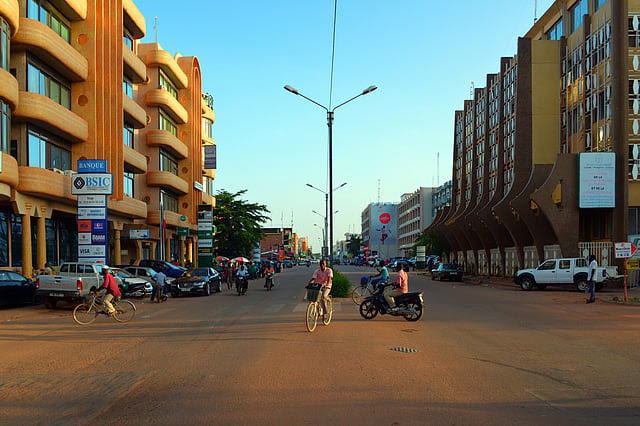Africa’s Development Banks Are Being Undermined — And the Continent Could Suffer.
- Home
- Africa’s Development Banks Are Being Undermined — And the Continent Could Suffer.

Africa’s Development Banks Are Being Undermined — And the Continent Could Suffer.
Two key African development finance institutions the African Export-Import Bank (Afreximbank) and the Trade and Development Bank (TDB) are under p
ressure, as Ghana and Zambia face calls from their official creditors to halt loan repayments to these banks.
These demands imply that Ghana and Zambia should prioritize paying back loans to official bilateral creditors over regional development banks, effectively treating Afreximbank and TDB as if they were commercial lenders.
According to scholars specializing in African development finance, this move could have serious consequences.
Two Major Concerns:
1. Higher Borrowing Costs for African Banks
By treating Afreximbank and TDB like commercial creditors, their credit ratings could suffer. This would raise their borrowing costs and weaken their ability to finance essential infrastructure and development projects across Africa.
2. Increased Financial Pressure on Ghana and Zambia
Pushing for outright defaults rather than supporting reasonable debt restructuring could deepen the economic vulnerability of both countries. They may either need to divert scarce funds to meet repayments or face lawsuits from the banks.
Although statements from the finance ministries of Ghana and Zambia suggest the decisions to default are domestic, they reportedly faced strong pressure from creditor governments to treat the African banks differently from institutions like the World Bank or African Development Bank.
Why This Distinction Matters
Multilateral development banks traditionally hold preferred creditor status, which prioritizes them in debt repayments during times of crisis. This status is intended to protect their ability to provide affordable, long-term funding for public investment and economic stability in developing countries.
Both Afreximbank and TDB were established to address Africa’s lack of access to affordable development finance a gap that commercial lenders and traditional multilateral institutions often cannot or will not fill. For example, Afreximbank was founded to support African trade and stimulate economic development.
Historically, these African institutions have also been granted preferred creditor status to carry out their roles effectively.
What Changed?
Some creditors and credit rating agencies argue that because Afreximbank and TDB have private shareholders (unlike the World Bank or African Development Bank), they shouldn’t be treated as multilateral development institutions. They claim these private stakeholders disqualify the banks from receiving special treatment.
However, this argument overlooks why private shareholders were included in the first place to increase financial flexibility and expand access to capital. This hybrid structure is not unique; similar models exist in institutions like Latin America’s CAF, which is highly regarded.
Using the banks’ innovative structure as a reason to downgrade their status is counterproductive and risks undoing progress.
Potential Impact
If Afreximbank and TDB are treated like commercial creditors:
Their borrowing costs will rise.
Lending to African countries will shrink.
The cost of loans to African governments will increase.
Financial inequality between African and non-African institutions will widen.
Sovereign debt defaults in Africa may become more likely.
Ultimately, this weakens the very financial stability that creditors say they want to protect.
A Call for Rethinking
The final outcome will depend on how negotiations unfold between Ghana, Zambia, and their various creditors. It also sets a precedent that could influence future African debt restructuring.
Global efforts are currently focused on strengthening regional development banks. But this requires recognizing and protecting their preferred creditor status not undermining it.
There is still time for creditor nations to reverse course and support the financial institutions that play a vital role in Africa’s development.

Content & Editorial Manager – Leads the creation, review, and publication of high-quality news and media content. She ensures that all editorial work reflects the organization’s standards of accuracy, professionalism, and relevance, while also engaging and informing the audience.
As the key driver of TokinPoint Media LTD’s editorial voice, the manager oversees content planning, assigns tasks to writers or editors, enforces deadlines, and ensures consistency across all platforms. She also plays a strategic role in aligning content with audience interests and search engine optimization (SEO) best practices.
Discover more from TokinPoint
Subscribe to get the latest posts sent to your email.
- Share
Faith Kegh
Content & Editorial Manager - Leads the creation, review, and publication of high-quality news and media content. She ensures that all editorial work reflects the organization’s standards of accuracy, professionalism, and relevance, while also engaging and informing the audience.
As the key driver of TokinPoint Media LTD's editorial voice, the manager oversees content planning, assigns tasks to writers or editors, enforces deadlines, and ensures consistency across all platforms. She also plays a strategic role in aligning content with audience interests and search engine optimization (SEO) best practices.
